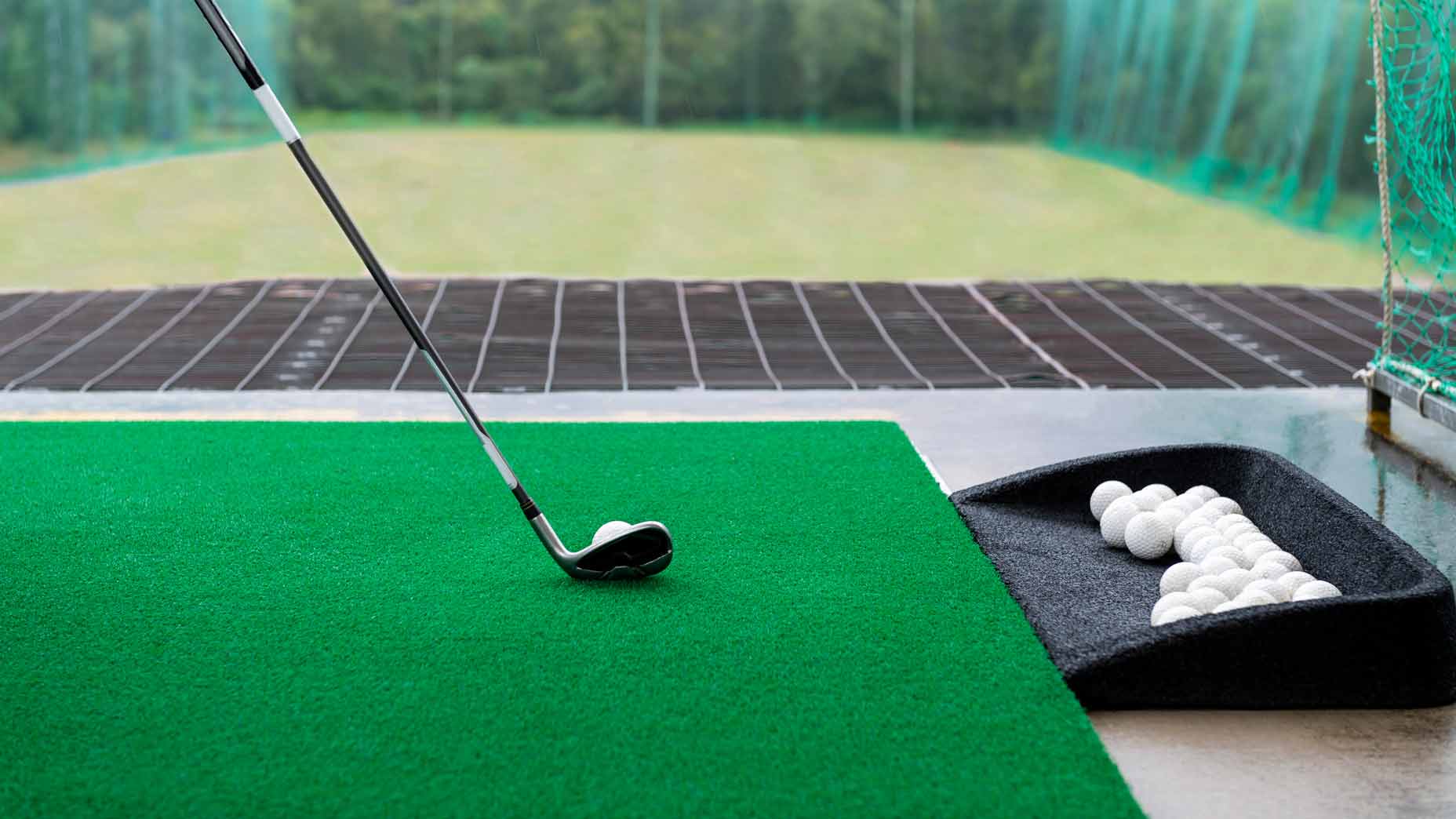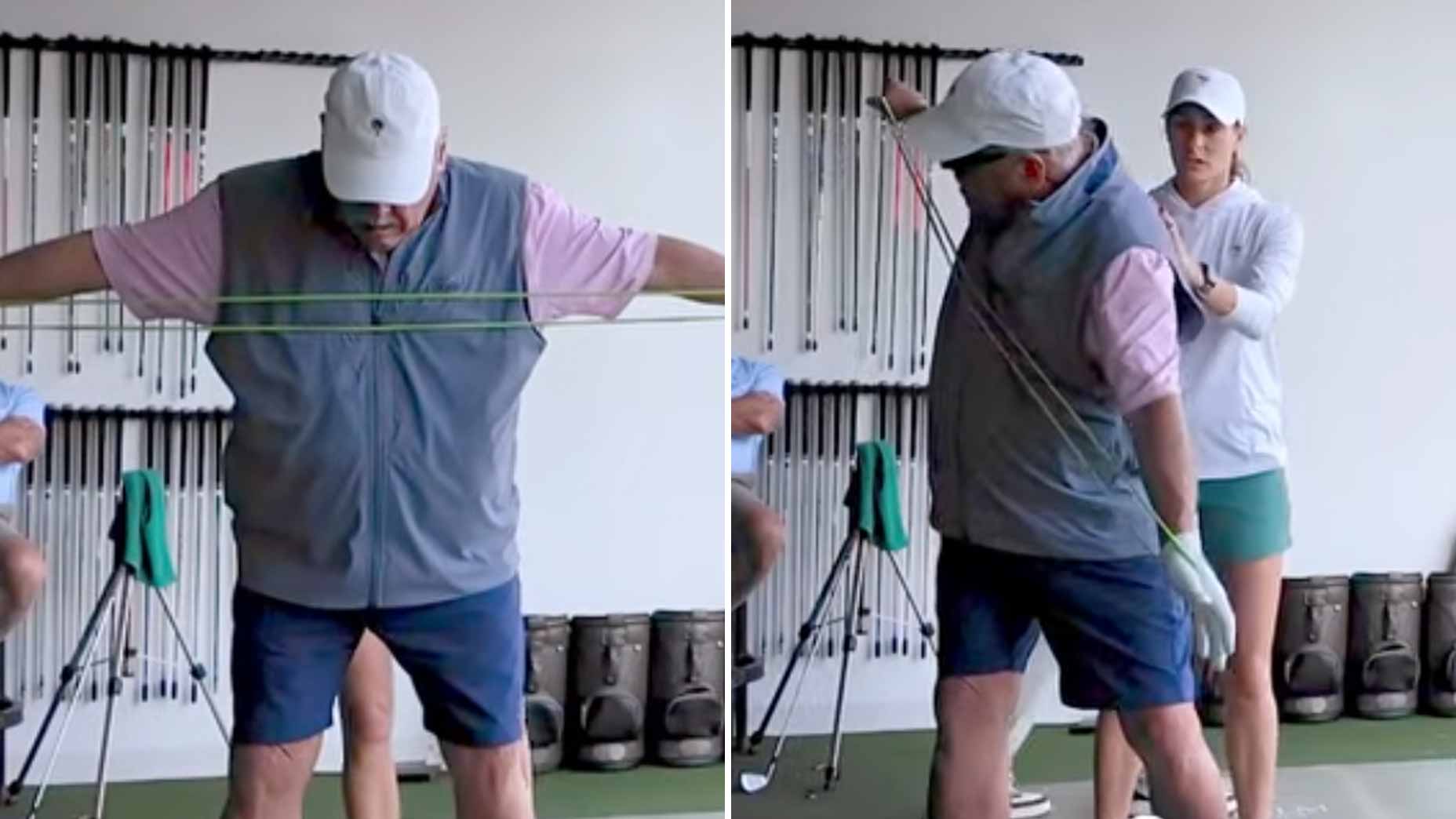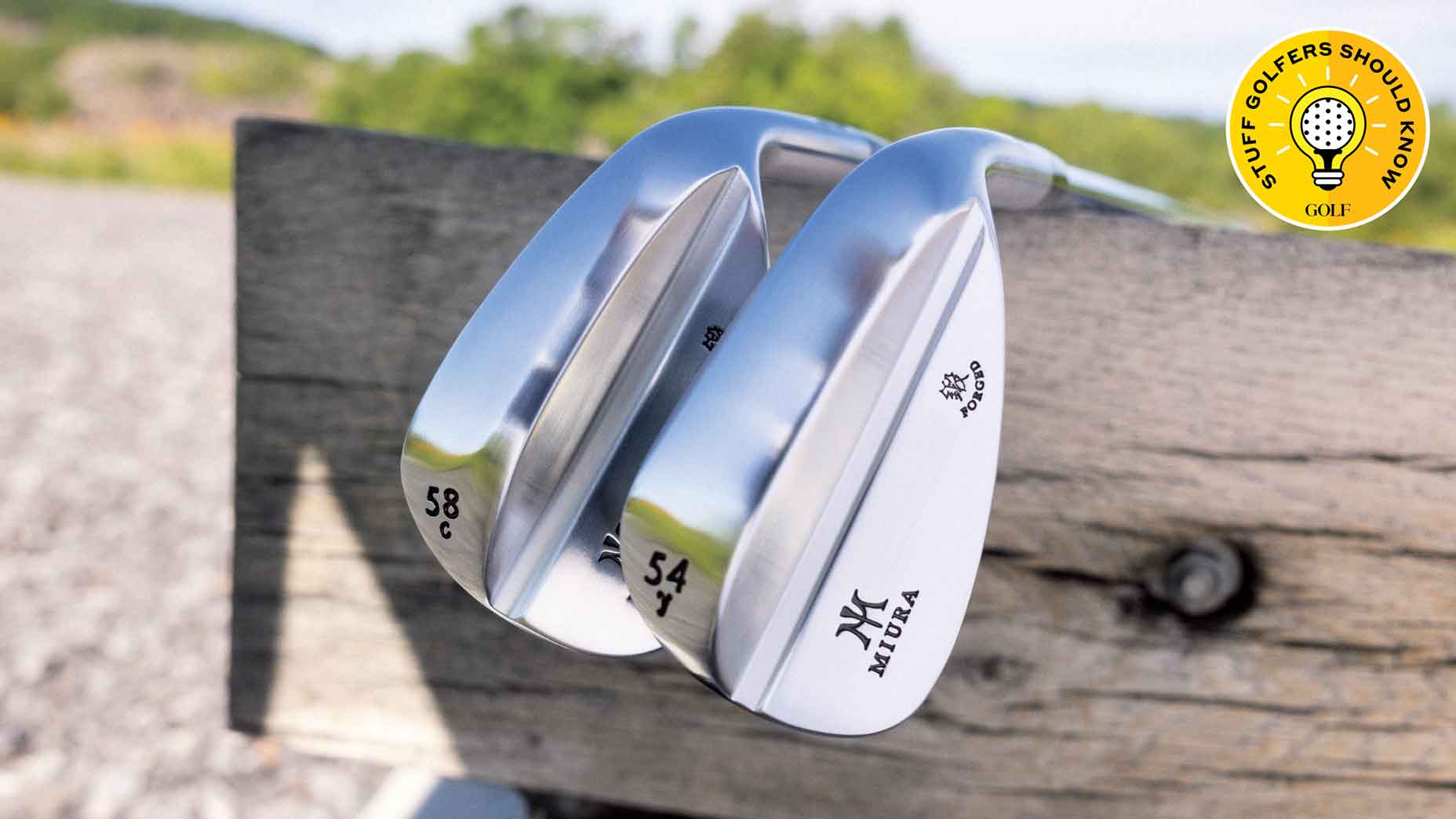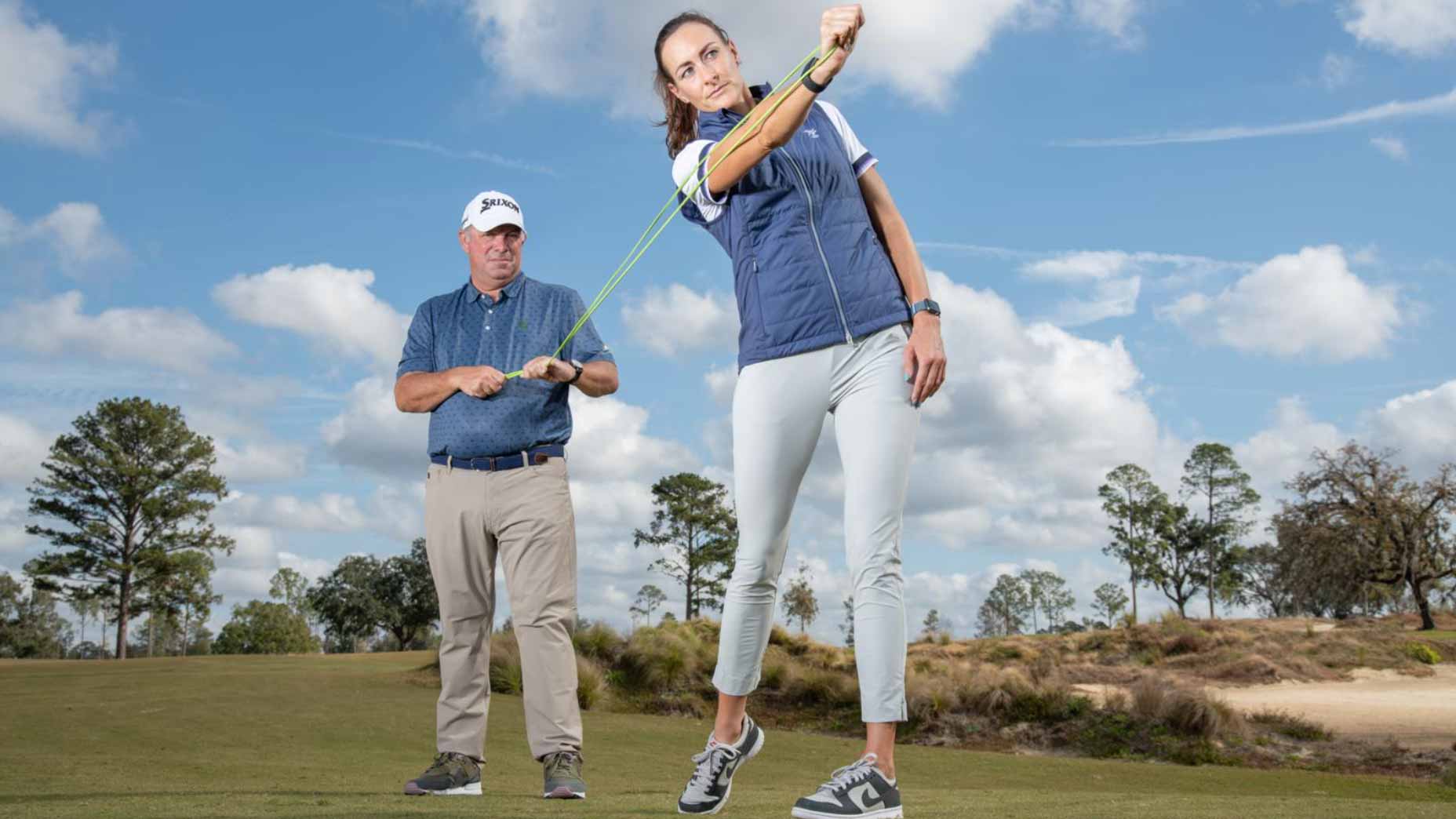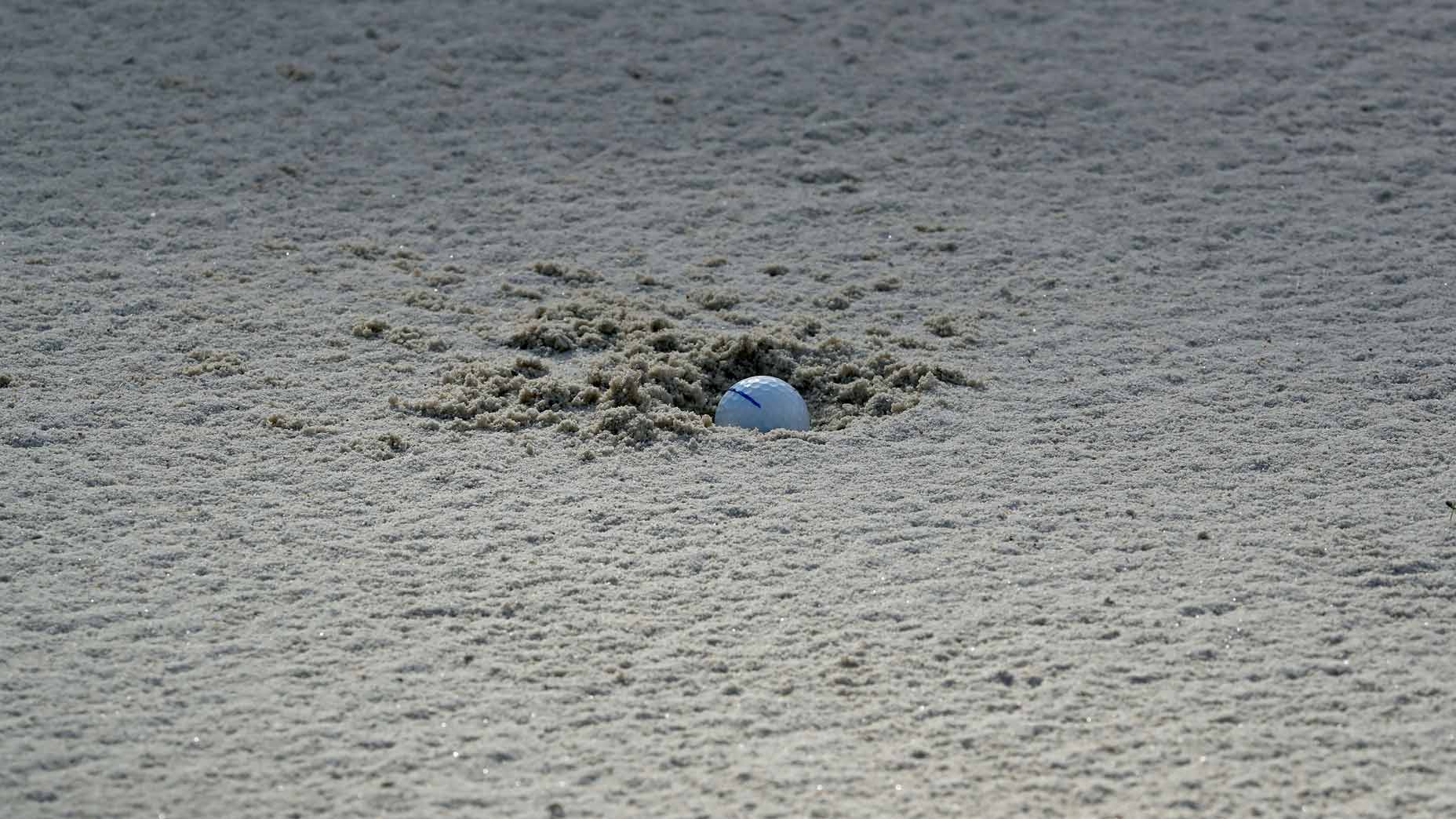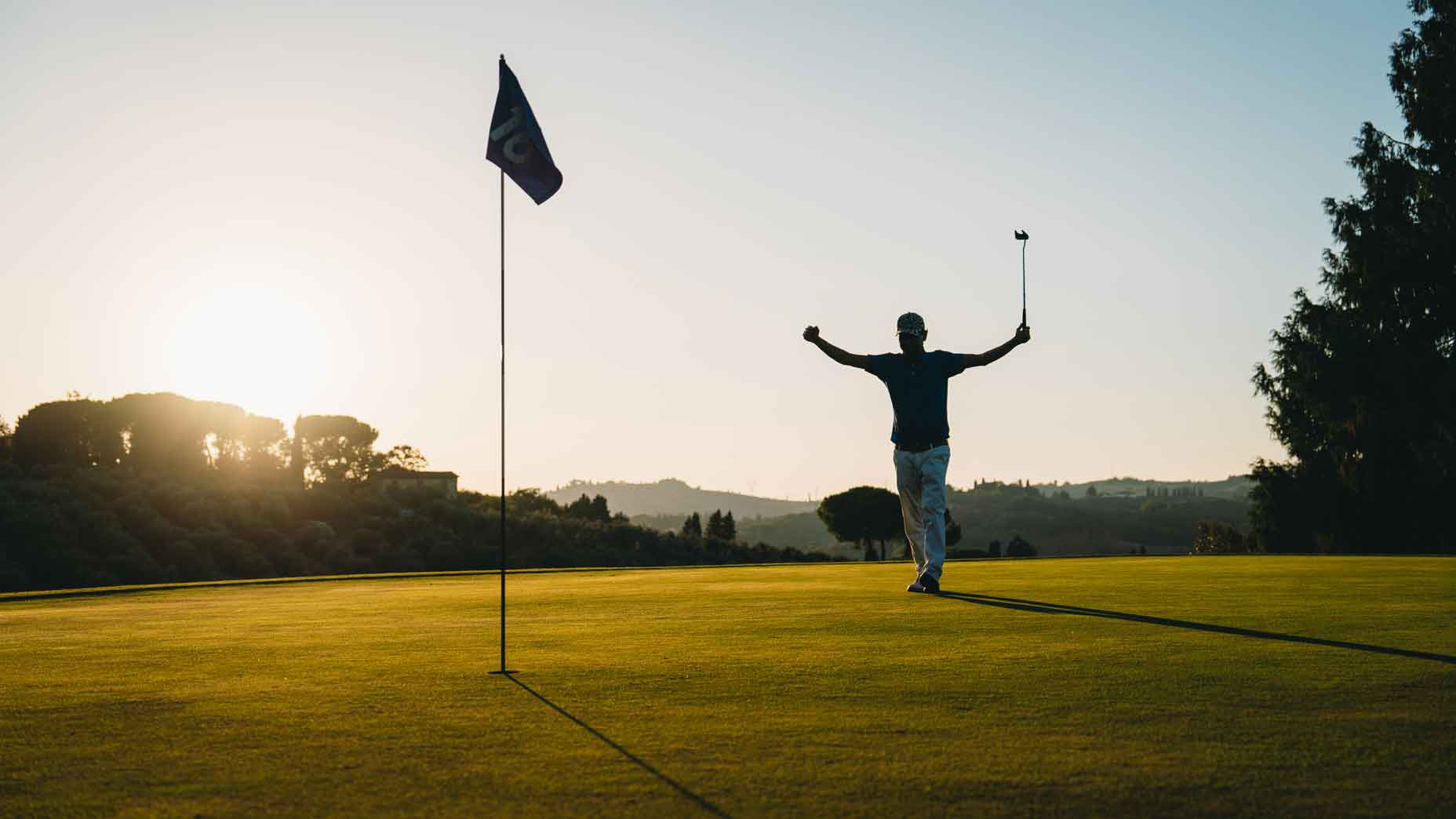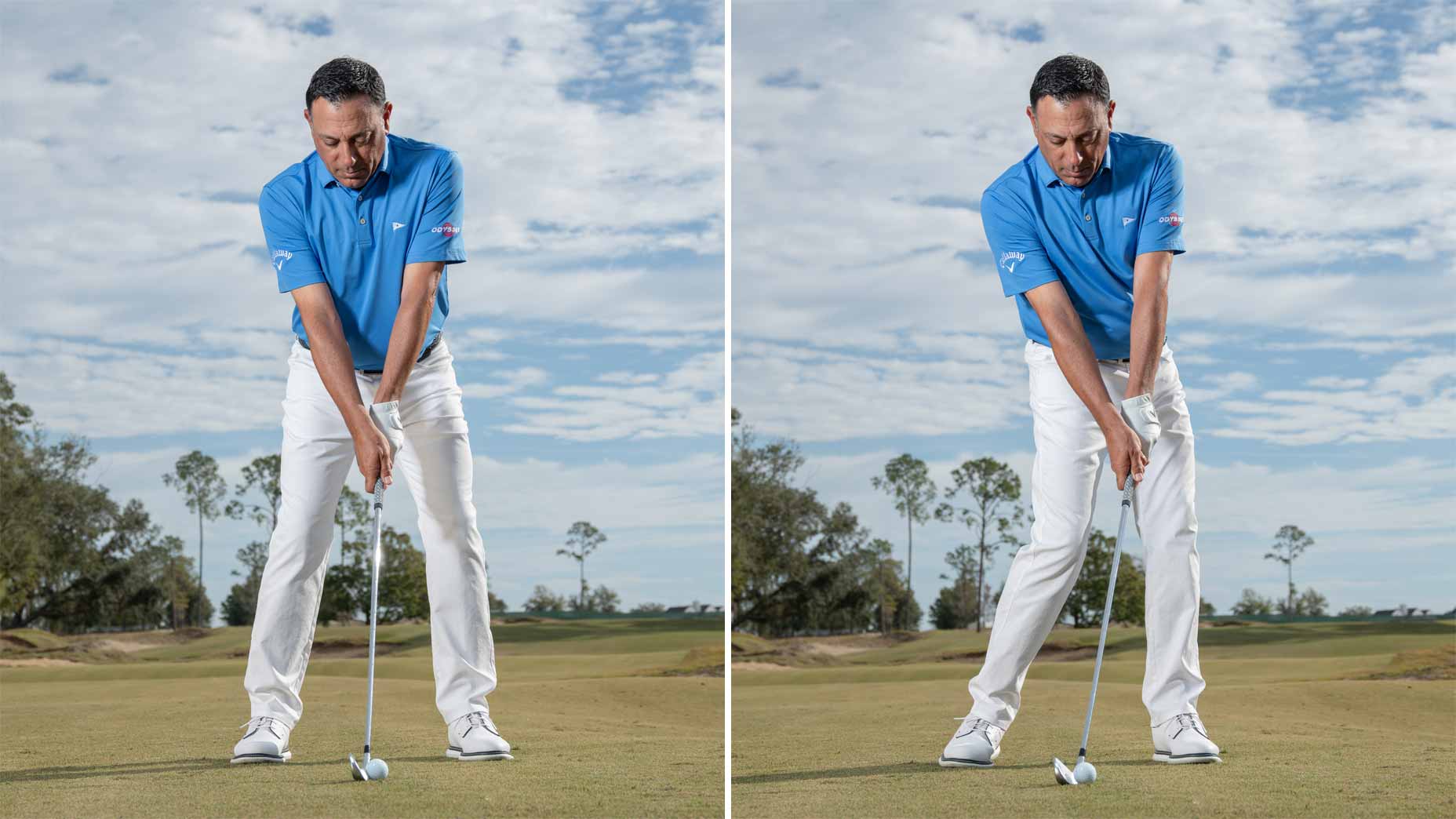It’s a sad time for golfers in the north. Winter is finally here, and the days of playing outside are likely over until spring. The only way many of us can get any work in on our swing is by heading to the simulators.
Compared to the alternative — no golf at all — simulators aren’t all that bad. Getting to play golf through the winter certainly has its perks, but it can also give you a false sense of confidence. Mainly because of the surface you’re hitting off of.
When in the simulator, mats are typically used to mimic the turf you’re accustomed to playing on outdoors. But no matter how high quality the mat is, there’s no way to fully replicate the club’s interaction with the turf when hitting indoors.
Because mats have less give than natural turf, the clubhead will sometimes bounce into the ball when hitting indoors. This can give us the illusion that we are hitting flush shots, but when we transition back to turf we find that we are hitting the ball fat. This brings us to today’s tip, which comes to us courtesy of Jonathan Yarwood, about managing our swing’s low point.
Watch those mats, they can fool ya! 🤷🏻♂️😬😂 pic.twitter.com/Exv0HUdJpu
— JonathanYarwood (@JonathanYarwood) January 10, 2024
How to manage your low point
The low point of your swing is the spot where your club bottoms out at the bottom of the swing arc. It’s critical that you have a consistent low point as it’s one of the key ingredients of solid ball striking.
As GOLF Top 100 Teacher Jonathan Yarwood explains in the video above, you want that low point to be a little bit in front of the ball so you’re making ball-first contact. This will keep you from bottoming out behind the ball and making the club bounce into impact.
To make sure your low point is in front of the ball, Yarwood suggests a couple key moves. From the top of the swing, he suggests bumping your lead hip a few inches toward the target. Once that’s done, Yarwood recommends rotating around your front leg and swinging through the rest of the way.
“All of the sudden, your hands are getting ahead, there’s lean in the shaft and the impact point starts to go forward,” Yarwood says. “That’s gonna make sure you don’t get the delusion of competence off the mat in the winter and you’ll go out and play some good golf on the actual golf course.”
